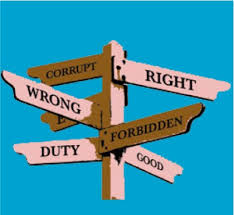Ifemelu didn’t know she was black – until, as a teenager, she came to America from Nigeria. She’s the focus of Nigerian/American Chimamanda Ngozi Adichie’s 2013 novel, Americanah. It’s garnered great reviews as penetrating social commentary about both countries.
Many novels are non-chronological, often starting with a dramatic scene and then going to the backstory. I get that. But Americanah cut back and forth so much that I had trouble keeping things straight.
Ifemelu’s teenaged Nigerian boyfriend was Obinze. It was no casual attachment, but portrayed as obviously quite deep. Yet soon after arriving in America, she stops reading or answering his e-mails and letters, cuts him off without a word. Why? No reason I could see. Near the end she gives a reason; but (to me) a lame one.
 Soon she’s in a fairy tale romance with Curt – handsome, rich, charming, warm, smart – white – and mad for her. They’re jetting to London and Paris on whim, etc. Then Ifemelu, for no particular reason, has a one night stand with a pallid grunge musician. Credible? Maybe. She informs Curt. Credible? Not so much. Curt throws her out. Credible? Well – I had a similar experience once (for a different, stupider reason).
Soon she’s in a fairy tale romance with Curt – handsome, rich, charming, warm, smart – white – and mad for her. They’re jetting to London and Paris on whim, etc. Then Ifemelu, for no particular reason, has a one night stand with a pallid grunge musician. Credible? Maybe. She informs Curt. Credible? Not so much. Curt throws her out. Credible? Well – I had a similar experience once (for a different, stupider reason).
 Then Ifemelu starts a blog on race matters from the perspective of a non-American black. Many blog postings are given verbatim. We’re apparently supposed to think they’re highly insightful and provocative. I did not. To me they flogged tired, whiny racial tropes we’ve heard a thousand times. Yet Ifemelu’s blog is wildly successful, she actually gets a living from it, attracting contributions and advertisers, speaking gigs proliferate, and she winds up with a Princeton fellowship.
Then Ifemelu starts a blog on race matters from the perspective of a non-American black. Many blog postings are given verbatim. We’re apparently supposed to think they’re highly insightful and provocative. I did not. To me they flogged tired, whiny racial tropes we’ve heard a thousand times. Yet Ifemelu’s blog is wildly successful, she actually gets a living from it, attracting contributions and advertisers, speaking gigs proliferate, and she winds up with a Princeton fellowship.
 (How does this happen? Someone please tell me – my blog, since ’08, obviously has highly excellent content, but its readership could fit in a phone booth (well, OK, a big one, and it would be very tight), and I’ve never earned a cent. Of course, I do it for love.)
(How does this happen? Someone please tell me – my blog, since ’08, obviously has highly excellent content, but its readership could fit in a phone booth (well, OK, a big one, and it would be very tight), and I’ve never earned a cent. Of course, I do it for love.)
 The book is full of party scenes — populated by effete, politically hip intellectual poseurs. They’re mildly satirized, which is mild fun, up to a point, but enough is enough.
The book is full of party scenes — populated by effete, politically hip intellectual poseurs. They’re mildly satirized, which is mild fun, up to a point, but enough is enough.
Ifemelu’s next live-in boyfriend is Blaine, a black Yale professor, another Prince Charming. So maybe it’s not an epic passion, but c’mon, a lot of folks would kill for such a nice mellow relationship. Yet after several years (and 13 in America) Ifemelu decides to chuck it all – Blaine, blog, Princeton – to return to Nigeria. Why? Beats me.
 It’s not as though Nigeria has improved since she left. Indeed, it’s gone downhill, growing even more dysfunctional and corrupt. The typical American hasn’t the faintest idea how different a nation like that is. Adichie does illuminate a lot of Nigeria’s rottenness. And yet, another thing I disliked about the book is its narrow portrayal of the country – the only Nigerians we meet are middle or upper class or intelligentsia.
It’s not as though Nigeria has improved since she left. Indeed, it’s gone downhill, growing even more dysfunctional and corrupt. The typical American hasn’t the faintest idea how different a nation like that is. Adichie does illuminate a lot of Nigeria’s rottenness. And yet, another thing I disliked about the book is its narrow portrayal of the country – the only Nigerians we meet are middle or upper class or intelligentsia. There’s no sense that this is a thin crust atop a vast populace at best just eking out an existence. Those Nigerian masses are invisible here.
There’s no sense that this is a thin crust atop a vast populace at best just eking out an existence. Those Nigerian masses are invisible here.
(Also unmentioned is Boko Haram, now in control of a large territory – showing that Nigeria’s government and army exist only for predation, and are useless to help or protect the populace. Yet, doing end-runs around their useless government, Nigeria’s creative and enterprising people are bubbling with entrepreneurship.)
Once back there, Ifemelu starts a new blog, about Nigeria (or at least that thin crust) – again a roaring success. She has an old friend, Ranyi, in fact a very good loyal friend who helps Ifemelu a lot. Ranyi is the kept woman of a married “big man,” a common Nigerian situation, which Ifemelu scathingly blogs about, the portrayal of Ranyi being unmistakeable. Ranyi complains. Ifemelu blows her off, saying she really had in mind her own Aunty Uju, whose being a general’s mistress “destroyed” her life.
Say what?
Destroyed? Aunty Uju, when her general suddenly croaked, got out of Nigeria with enough to reach America and became a doctor. And brought up the general’s child as her well beloved son.
I found Ifemelu unlikeable. If that was the author’s intent, she succeeded, but somehow I doubt it was. This novel had a very autobiographical feel.
 There’s still Obinze, Ifemelu’s teen heart-throb. We’ve been following his adventures too. He’s become quite rich – the Nigerian way, that is, by sucking up to a “big man” who lets him in on a deal plundering the public treasury. Despite this, Obinze is yet another guy portrayed too good to be true, a saint so bursting with virtues and devoid of faults that it made me gag.
There’s still Obinze, Ifemelu’s teen heart-throb. We’ve been following his adventures too. He’s become quite rich – the Nigerian way, that is, by sucking up to a “big man” who lets him in on a deal plundering the public treasury. Despite this, Obinze is yet another guy portrayed too good to be true, a saint so bursting with virtues and devoid of faults that it made me gag.
Ifemelu finally contacts him before her return to Nigeria. And then, once there, fails to follow up. Would someone please smack this woman upside the head? But maybe it’s just my biased perspective. I worked so hard to get a good partner, and value her so much, that Ifemelu’s insouciance rankles.
 Of course I won’t reveal the ending, but you can guess it. Such endings are supposed to be satisfying to the reader. But I felt a less saccharine conclusion would have been truer to what preceded it.
Of course I won’t reveal the ending, but you can guess it. Such endings are supposed to be satisfying to the reader. But I felt a less saccharine conclusion would have been truer to what preceded it.

















































